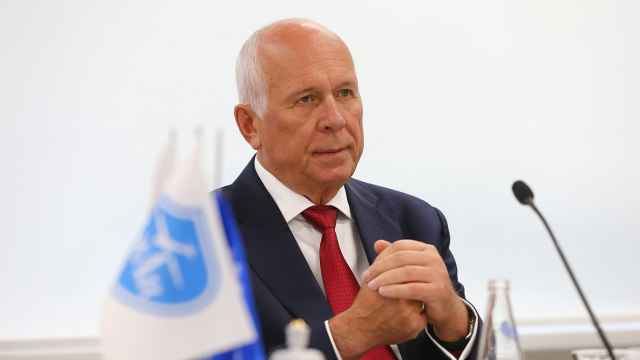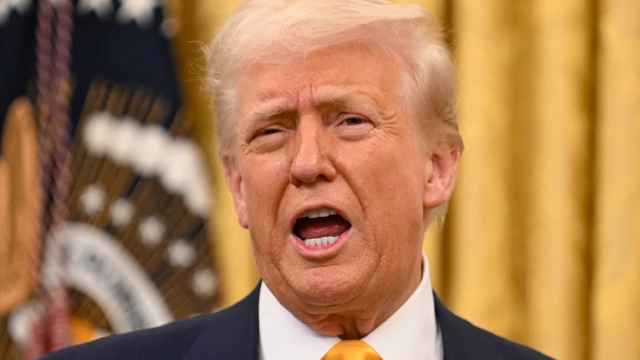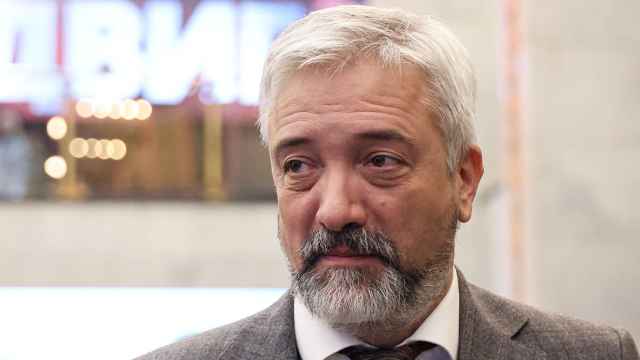The Energy Ministry has outlined a new tax policy designed to attract tens of billions of dollars of investment into promising but challenging new oil provinces in Arctic offshore zones, government sources said Wednesday.
The world's largest oil producer faces falling output in the Soviet-era oil heartland of western Siberia and will need to open up its continental shelf to sustain output that, according to some forecasts, would otherwise peak later this decade.
ExxonMobil last year became the first global major to stake a claim in the Russian Arctic by signing a drilling partnership with state oil firm Rosneft, after British rival BP failed to close a similar deal.
Recovering the estimated 36 billion barrels in reserves from the three blocks in the Kara Sea, to be developed by the Rosneft-Exxon partnership, is contingent on putting in place a viable tax regime.
"The initiative is aimed at formulating a tax policy that provides investors with competitive target levels of return on capital that reflect investment risks of a particular project category, depending on ice conditions, depth and other key metrics," one government source said.
Royalties and profit tax would be set after an assessment of costs two years into each project, government sources said.
Russia has created a de facto state monopoly for offshore exploration — with Rosneft taking the lead on oil and Gazprom getting the gas — although private-sector players like LUKoil are lobbying for a piece of the action.
The $3.2 billion initial commitment by Exxon is a fraction of the tens of billions of dollars that would ultimately be needed to develop the Kara Sea blocks, located to the north of Russia's main oil producing base of western Siberia.
Russia's oil industry is now taxed at a marginal rate of about 90 percent per barrel of crude oil exported, among the heaviest in the global industry.
Critics say the current system — whose main revenue generators are Mineral Extraction Tax and export duty — taxes barrels rather than profits, and thus fails to take into account the huge up-front costs of many upstream projects.
To address that problem, the government has granted a series of tax holidays to encourage exploration in new regions such as eastern Siberia, but these tax breaks have often been granted on an ad hoc basis and subsequently amended or scrapped.
Russia's tax system directs most of the upside from rising oil prices to the state — which relies on oil and gas levies for half of its federal revenues — depriving oil firms of incentives to take on risky, capital-intensive projects.
"The majority of revenue-based taxes that prevent even initial investments in [Arctic offshore energy projects] would be difficult to justify if we are to see any investments flowing offshore," the source said. "This needs to be a simple, crisp approach built around a royalty and profit tax that could deliver meaningful tax revenue and multiplier effect to the country and reasonable return and stability to investors."
The Arctic tax policy has been submitted to other departments for review, but, importantly, has yet to be agreed by the Finance Ministry.
Energy tax reforms in Russia have in the past often been blocked, delayed or heavily amended as a result of interdepartmental wrangling.
"No decisions have been made yet; nothing has been confirmed. All this is a set of highly preliminary principles that are being put forward by the Energy Ministry for formal review by other ministries," the source said.
A Message from The Moscow Times:
Dear readers,
We are facing unprecedented challenges. Russia's Prosecutor General's Office has designated The Moscow Times as an "undesirable" organization, criminalizing our work and putting our staff at risk of prosecution. This follows our earlier unjust labeling as a "foreign agent."
These actions are direct attempts to silence independent journalism in Russia. The authorities claim our work "discredits the decisions of the Russian leadership." We see things differently: we strive to provide accurate, unbiased reporting on Russia.
We, the journalists of The Moscow Times, refuse to be silenced. But to continue our work, we need your help.
Your support, no matter how small, makes a world of difference. If you can, please support us monthly starting from just $2. It's quick to set up, and every contribution makes a significant impact.
By supporting The Moscow Times, you're defending open, independent journalism in the face of repression. Thank you for standing with us.
Remind me later.





